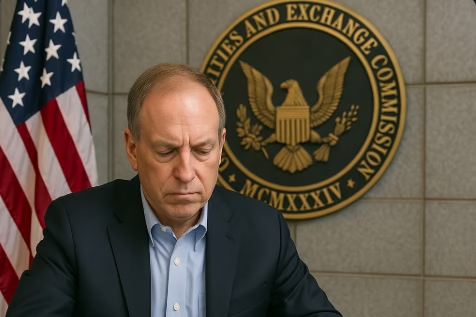Wisconsin lawmakers introduced new proposed crypto legislations on September 30 that could redefine how digital asset businesses operate in the state. At the center is Assembly Bill 471, which seeks to exempt certain blockchain activities from financial licensing requirements, reducing regulatory friction and supporting local innovation.
What Assembly Bill 471 proposes
The text of Assembly Bill 471 outlines broad exemptions for individuals and companies engaged in mining, staking, blockchain software development, or digital asset transfers that do not involve conversion to U.S. dollars. Under this framework, such entities would not be required to obtain a money transmitter license from the Wisconsin Department of Financial Institutions.
Neither a state agency nor a political subdivision may prohibit or restrict a person in accepting digital assets as a method of payment for legal goods and services or in taking custody of digital assets using a self-hosted wallet or hardware wallet, the bill states.
If passed, the law would enshrine protections for Wisconsinites to operate blockchain nodes, develop software on blockchain protocols, and participate in staking without facing additional regulatory hurdles.
“This legislation could give Wisconsin a competitive edge in attracting blockchain talent and businesses,” said Michael Bailey, policy director at the non-profit Blockchain Association, in a statement. “Clarity is essential, and proposed crypto legislations like this one are a step in the right direction.”
Current framework and business impact
Wisconsin currently requires most crypto businesses to secure a money transmitter license before serving residents. Earlier this year, crypto payment gateway MoonPay obtained such a license from the Department of Financial Institutions to expand into the state.
However, because MoonPay is a custodial service provider that facilitates the conversion of digital assets into fiat, it would not qualify for the exemptions outlined in Assembly Bill 471. Instead, the law primarily benefits non-custodial activities such as self-hosted wallets, staking services, and software development that do not directly touch traditional banking rails.
Critics argue this carve-out could create uneven oversight. If exemptions are too broad, consumer protections could be undermined, said Sarah O’Connell, professor of financial regulation at the University of Wisconsin-Madison. Legislators must balance innovation with safeguards, especially as more proposed crypto legislations appear nationwide.
The political path ahead
For the bill to become law, it must pass through the Assembly Committee on Financial Institutions, where lawmakers can review and amend it. If approved, the measure will head to the full Assembly, then to the Senate, before ultimately requiring the governor’s signature.
According to the Legislative Reference Bureau, Assembly Bill 471 currently has nine Republican sponsors and one Democratic sponsor. That partisan balance may ease its passage in Republican-controlled committees but could complicate broader approval.
Observers note that bipartisan cooperation will be crucial. To gain traction, proposed crypto legislations like AB 471 need to appeal across the aisle, not just to pro-market conservatives, said David Porter, senior fellow at the Cato Institute, in a recent policy brief.
Wisconsin’s broader crypto stance
Wisconsin has generally been regarded as more open to digital assets than other states. In 2023, it became the first U.S. state government to gain Bitcoin exposure through an investment in BlackRock’s iShares Bitcoin Trust.
As of September 30, crypto legislation tracker Bitcoin Laws reported that Wisconsin regulators are considering three additional proposed crypto legislations. These include two measures covering regulations for crypto ATMs and one bill offering tax exemptions for certain qualified data centers that support blockchain operations.
The state’s proactive stance reflects a growing recognition that digital assets are becoming mainstream. Yet, uncertainty remains about whether local lawmakers will align on how far to deregulate the sector.
What comes next
If approved, Assembly Bill 471 could position Wisconsin as a hub for blockchain development, signaling to entrepreneurs that the state welcomes experimentation in mining, staking, and software. Still, its partisan sponsorship raises questions about whether the bill can survive the full legislative process.
For crypto investors and businesses, the outcome could serve as a bellwether for how U.S. states adopt proposed crypto legislations in the coming years. States such as Texas and Wyoming have already enacted pro-crypto frameworks, while others, like New York, maintain strict licensing regimes.
The future of crypto in America will be shaped in statehouses as much as in Washington, Bailey of the Blockchain Association added. Wisconsin’s bill illustrates the stakes whether states choose to foster innovation or stifle it with outdated rules.
As momentum builds, the fate of proposed crypto legislations in Wisconsin may set the tone for digital asset policy across the Midwest.











